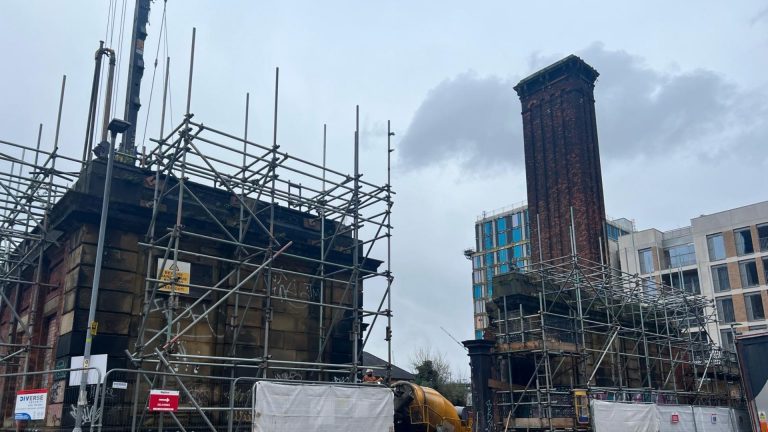News
Your Ultimate Guide to Leasehold Reform (Ground Rent) Act 2022
On the 30th June 2022, the government introduced the new Leasehold Reform (Ground Rent) Act which affects new leasehold properties sold in England and Wales.
Throughout this feature, CERT property highlights key points that existing leaseholders and prospective buyers should be aware of and how the Leasehold Reform (Ground Rent) Act 2022 will affect those considering buy-to-let investments after the enforcement date.
What is the Leasehold Reform (Ground Rent) Act 2022?
The government’s Leasehold Reform (Ground Rent) Act 2022 is the first phase of Reform that has been put in place to make leasehold property ownership fairer and more affordable.
Previously, expensive and escalating Ground Rent fees caused a series of issues for investors and owners of leasehold properties, especially in scenarios where costs rapidly increased over a short period.
In some cases, owners with unfair Ground Rent provisions have found selling and mortgaging their property difficult. One of the Act’s purposes is to prevent leaseholders from becoming trapped by escalating Ground Rents, making the process more transparent for new leasehold purchases.
The Act abolishes Ground Rent for new and qualifying residential leasehold properties in England and Wales. A ‘long lease’ refers to a term of 21 years or more.
Now the Act has become law, the amount of Ground Rent on new leases agreed and issued after the 30th June can not be a value more than ‘an annual rent of one peppercorn’, which is the equivalent of zero financial value.
Historically, unfair or exponentially increasing Ground Rent fees have also caused problems for buyers purchasing Leasehold properties with a mortgage; however, introducing peppercorn rent will simplify the lending process considerably.
To find out how this can affect mortgages, click here to download the full guide.
Essentially, the Reform has been split into two parts. The first phase deals with new leaseholds, limiting Ground Rents to effectively a zero rate and the second phase of legislation deals with existing leaseholds. There is currently no confirmed date for phase two; however, there are suggestions that it could be addressed before the next General Election (May 2024).
It is thought that the second phase of the Act will include further legislation to improve the position of existing leaseholders and is likely to establish a method to reduce Ground Rents on existing leases to a peppercorn. Plans also include the introduction of a statutory calculation to determine the cost a Leaseholder should pay to extend an existing lease.
What is the difference between Freehold and Leasehold?
When understanding Leasehold Reform, it is essential to differentiate between Freehold and Leasehold.
Generally speaking, Freehold and Leasehold apply to the ownership of apartments or flats.
A Freeholder owns the property and the land it sits on for an unlimited period. Ground Rent is created when a Freeholder grants a long lease of a property or land. The Ground Rent provides income for the landowner (Freeholder).
A Leaseholder owns a property for a predetermined period of time as defined in their lease and does not own the land it sits on. Therefore, a Leaseholder is often liable for paying the Freeholder Ground Rent – an annual payment which varies depending on who owns the freehold and the terms outlined in the leasehold.
From 30th June 2022, Ground Rent on qualifying new leaseholds has been abolished. The Act covers the majority of new-build residential property – except in exceptional circumstances – which is excellent news for buy-to-let investors searching for a rental property.
What is Ground Rent?
Ground Rent is a payment made by leaseholders to the Freeholder (their landlord). The amount paid is set out within the leasehold terms and is typically charged annually.
From 30th June 2022, Ground Rent on the vast majority of new leaseholds in England and Wales will be set at a peppercorn rate.
What are the benefits of the Leasehold Reform Act?
The first phase of the Act was introduced on 30th June 2022; however, the enforcement date for retirement properties is set for 1st April 2023.
The Act is a welcomed safeguard in the industry for investors and homeowners and provides much-needed transparency, preventing leaseholders from becoming trapped by potentially escalating Ground Rent fees.
Overall, it will make leaseholders’ ownership more straightforward and fulfils the government’s commitment to set future Ground Rents at zero.
Those entering the buy-to-let market will benefit from lower costs over the long term, helping to maximise their return on investment by eliminating one of their ongoing charges.
The Act also simplifies lending for those who wish to fund their purchase with a mortgage. With onerous Ground Rent terms removed on all qualifying new leaseholds, securing funding will likely take less time and will open up a wider pool of mortgage products for borrowers.
What about Ground Rent reform on existing leases?
The Act only applies to long residential leases agreed and issued on or after the 30th June 2022 and will not change the terms of an existing lease.
If an existing lease is surrendered and regranted, it may fall under the Act, and the new regulations surrounding Ground Rent will apply.
Adding additional land to a lease may also result in it falling under the terms of the lease. But, it’s best to seek legal advice to see how the Act applies to individual circumstances.
However, certain leases are excluded from the Act, including business leases, statutory lease extensions, community housing, and home finance leases.
What are the risks?
There are still a few risks investors should consider. Based on our experience and market knowledge, we see three main areas that should inform your decision, depending on the type and size of your investment. Here at CERT, one of our values is transparency, so we are always here to answer any specific questions you may have. One thing to note is that there is no one answer that fits all investment scenarios, make sure you read through the points below and seek advice in case you are not experienced with such decisions.
Unfavourable Leasehold terms
Investors entering a new leasehold investment should always purchase from a reputable consultancy or developer to prevent being caught out by unfavourable management provisions in their leasehold terms. After all, rising operational costs imposed by a Freeholder or management company will impact the profitability of your rental property investment and, in some cases, could make selling the asset harder should you wish to sell it.
For example, with the new Leasehold Reform in place, some unscrupulous freeholders may pressure leaseholders to agree to voluntary leasehold extensions to continue existing Ground Rent arrangements.
A two-tier Leasehold market
As the legislation does not apply retrospectively, this could create a two-tier market whereby existing leases become more difficult to sell and new leases become much more attractive. However, it is yet to be seen if this will be the case.
No clarity on the 2nd part of the Leasehold Reform
Currently, there is no timeframe for the second part of the Reform to simplify extending a lease or make extending a lease cheaper. However, this point shouldn’t necessarily be a concern for existing owners with a long leasehold already in place.
To find out more, download our full Leasehold Reform Guide and Investor Checklist or contact us.
More News





